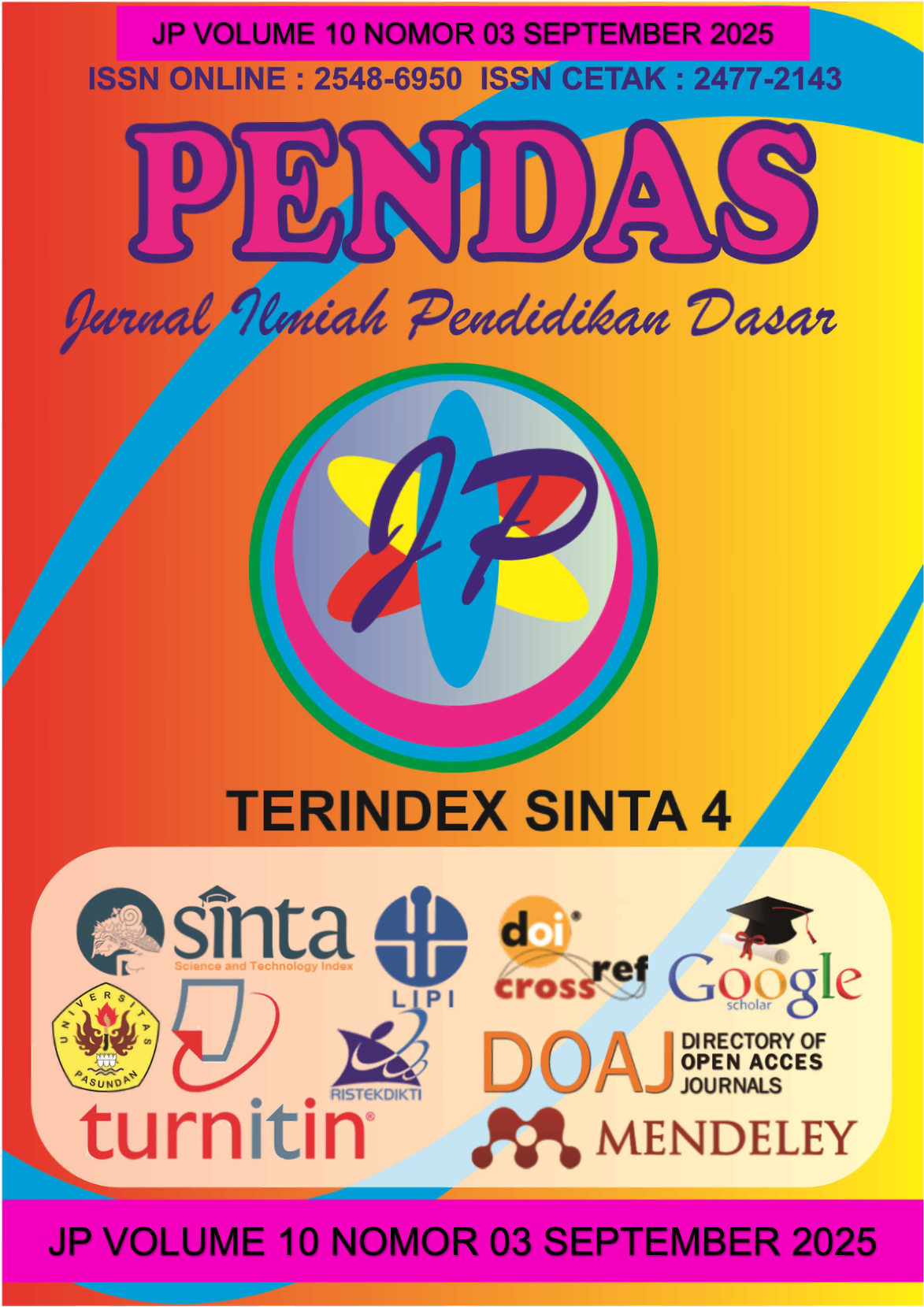Analisis Kebutuhan Pengembangan Pembelajaran Terpadu Berbasis Digital di Era Revolusi Industri 4.0 pada SD Negeri Tuapukan Kecamatan Fatuleu
DOI:
https://doi.org/10.23969/jp.v10i03.30058Keywords:
Integrated Learning Digital Education Primary School Teacher Competence Educational Technology Education 4.0 Rural School ContextAbstract
This study aims to analyze the needs for the development of integrated learning based on digital transformation in the context of the Industrial Revolution 4.0 at SD Negeri Tuapukan, Fatuleu District. The research problem focuses on the gap between the demands of 21st-century learning and the current readiness of schools to implement digital-based learning. Using a qualitative descriptive method with interviews, observations, and document analysis, the study reveals that while digital learning approaches can enhance student engagement and motivation, significant barriers persist, including limited infrastructure, insufficient teacher digital competence, and lack of policy support. The results highlight that effective digital transformation in primary education requires not only adequate facilities but also continuous capacity building for educators and curriculum adaptation. The implication of this research is the importance of multi-stakeholder collaboration schools, governments, teachers, and communitiesto ensure equitable and sustainable digital learning implementation across educational settings.Downloads
References
Artikel in Press :
Fisk, P. (2017). Education 4.0: The future of learning will be dramatically different, in school and throughout life. Retrieved from https://www.thegeniusworks.com
Ning, A., & Danso, R. (2025). Building digital resilience in primary education: Policy and practice in developing countries. Journal of Digital Education Policy, 9(1), 33–48. https://doi.org/10.1234/jdep.v9i1.2502.
Jurnal :
Bentri, A., Zainil, Y., & Yetti, E. (2022). Teachers’ digital pedagogical competence in Indonesian schools: A systematic review. Frontiers in Education, 7, 929191. https://doi.org/10.3389/feduc.2022.929191
Jamilah, J., Suhardi, S., & Nuraeni, Y. (2021). Transformasi pembelajaran daring pada pendidikan dasar di masa pandemi. Formatif: Jurnal Ilmiah Pendidikan MIPA, 11(2), 145–156. https://doi.org/10.30998/formatif.v11i2.9732
Pitriyah, A. N., & Sulistyaningrum, D. R. (2023). Pemanfaatan media YouTube dalam meningkatkan kemampuan berbicara bahasa Inggris siswa SD. English Education Journal (EEJ), 14(2), 245–257. https://jurnal.usk.ac.id/EEJ/article/view/38471
Rofiatun, R., Lestari, N., & Handayani, D. (2024). Sistematisasi tantangan dan peluang pembelajaran digital di sekolah dasar. At-Thullab: Jurnal Pendidikan Guru Madrasah Ibtidaiyah, 9(1), 17–28. https://journalfai.unisla.ac.id/index.php/at-thulab/article/view/2280
Saifuddin, M. F., & Putra, D. Y. (2024). Strategi peningkatan literasi digital melalui komik bergerak berbasis lingkungan sekolah dasar. Gagasan Pendidikan Indonesia, 5(1), 19–29. https://jurnal.untirta.ac.id/index.php/GAGASAN/article/view/24830
Syahrir, S., Marzuki, M., & Zulfadli, Z. (2024). Implementasi model pembelajaran berbasis STEM dan ICT dalam meningkatkan literasi digital siswa sekolah dasar. Jurnal Pendidikan dan Kebudayaan, 9(1), 68–80. https://jurnaldikbud.kemdikbud.go.id/index.php/jpnk/article/view/4896
Yusuf, I., Zuhrawardi, Z., & Wardani, N. S. (2020). Pemanfaatan media video animasi dalam meningkatkan pemahaman konsep siswa sekolah dasar. Indonesian Journal of Educational Research and Review, 3(1), 78–88. https://ejournal.undiksha.ac.id/index.php/IJERR/article/view/80617.
Downloads
Published
Issue
Section
License
Copyright (c) 2025 Pendas : Jurnal Ilmiah Pendidikan Dasar

This work is licensed under a Creative Commons Attribution 4.0 International License.



















